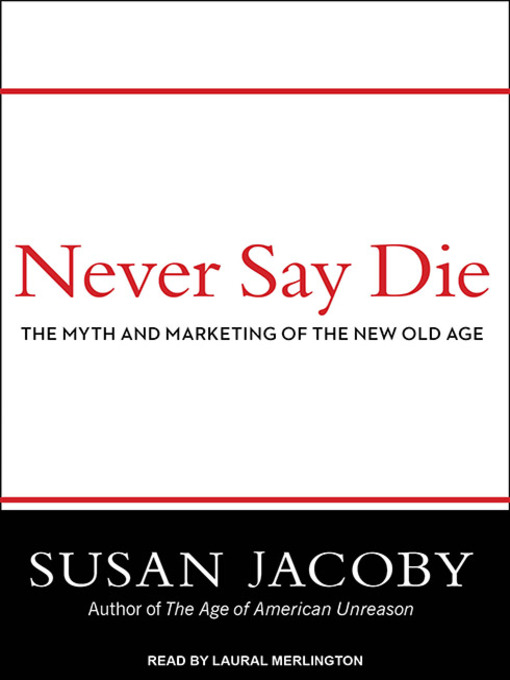
Never Say Die
The Myth and Marketing of the New Old Age
فرمت کتاب
audiobook
تاریخ انتشار
2011
نویسنده
Laural Merlingtonناشر
Tantor Media, Inc.شابک
9781452670379
کتاب های مرتبط
- اطلاعات
- نقد و بررسی
- دیدگاه کاربران
نقد و بررسی

The author seeks to dampen the unrealistic expectations of Baby Boomers that they can expect to live--and live well--in their eighth, ninth, and tenth decades. The discussion confronts aging in a realistic way, reporting on scientific research but cautioning that the fruits of this research remain decades away. Laural Merlington offers a solid, engaging narration. Her tone and pacing underscore many of Jacoby's key points, her voice often rising in emotion when the author writes about the fate of a favorite relative who was reduced to spending her final months in a dreary nursing home, unable to do much on her own. Merlington owns the work in a way you would expect from the author herself if she had narrated her book. R.C.G. Winner of AudioFile Earphones Award (c) AudioFile 2011, Portland, Maine

November 15, 2010
"I am about to present a portrait of advanced old age," Jacoby (The Age of American Unreason) warns, "that some will find too pessimistic and negative." Her portrait of the emotional, physical, fiscal, and mental problems debunks popular myths about life in our 80s and 90s, "the worst years of lives." Jacoby locates American youth culture from colonial days, when, in 1790, "only about 2 percent were over sixty-five." By 2000, those over 65 were 12.4%, thanks to modern medicine and the benefits to well-being coincident to the economic prosperity of the 1950s and '60s. Jacoby cautions that marketing has deceived the public by suggesting that "cures for mankind's most serious and frightening diseases are imminent and that medical reversal or significant retardation of aging itself may not be far behind." As she attends to the "genuine battles of growing old," Jacoby is both moving and informative about Alzheimer's costs to the psyche and the purse of sufferer and caretaker, and eye-opening as she reframes impoverished old women as "a women's issue." She raises timely and "uncomfortable questions about old age poverty, the likelihood of dementia, end-of-life care, living wills, and assisted suicide."

























دیدگاه کاربران